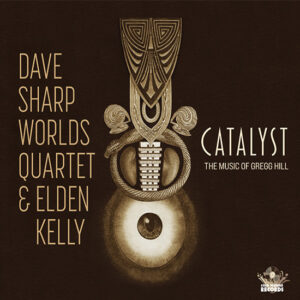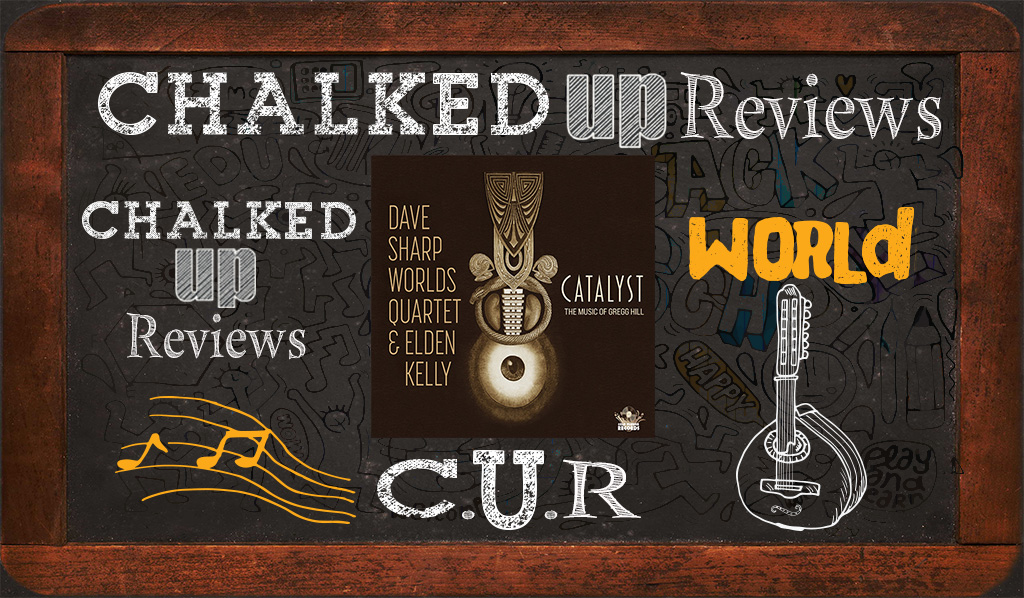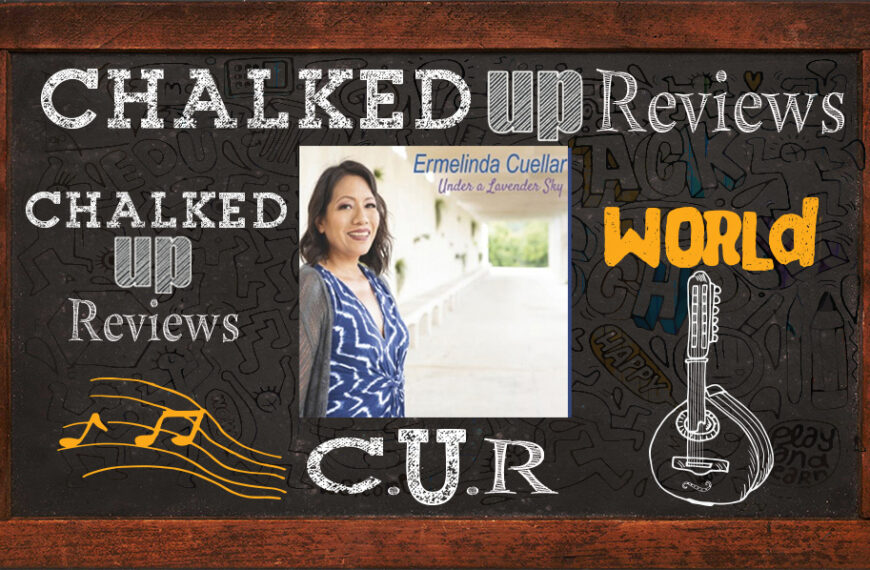
Dave Sharp’s Worlds Quartet, joined by guitarist/arranger Elden Kelly, delivers a vibrant world music reimagining of Gregg Hill’s compositions on Catalyst: The Music of Gregg Hill. Where Hill’s tunes have often appeared in straight-ahead contexts, here they become the backbone of a global world music dialogue. The result is a winning listening experience of strong compositions and an outstanding ensemble of musicians gifted in improvisation and cross-cultural exploration.
Gregg Hill’s writing is characterized by clear melodic logic, shifting time signatures, and harmonic openness to many genres. On Catalyst, those traits provide the anchor that allows the ensemble to venture into world idioms without losing coherence. Kelly, who has served as Hill’s transcriptionist, treats the originals as starting points for transformation. He adds new sections, reshapes melodies, and recasts grooves through global styles.
The improvisations on Catalyst highlight how distinct musical languages can converse when grounded in a common framework. On the opener, “Traveling with Gregg,” violinist Henrik Karapetyan’s phrasing draws on Hungarian Romani ornamentation and classical virtuosity, while Igor Houwat’s oud introduces Middle Eastern maqam inflections. Their call-and-response, supported by Mike List’s tabla-inspired hand drumming and Sharp’s grounding bass, models attentive dialogue across traditions. This track demonstrates how modal contexts can foster stylistic plurality without dissonance.
“Rue de Royal” shifts with elements of New Orleans and European jazz. Karapetyan swings with a Gypsy jazz edge in sections. Houwat’s oud leans into flamenco turns, and the rhythm section toggles with a pulse that melds them together. The takeaway is the adaptability of the quintet’s improvisational vocabulary.
“13th Century Lion” is written in 5/4 (or 10/8). The quintet brings their rhythmic fluency in the phrasing across asymmetrical meters. Kelly’s guitar textures add a fusion edge, while List anchors the groove with polyrhythmic accents. This piece is a study in rhythmic grouping, phrasing, and maintaining coherence in odd time signatures.
“The Stray Moonduck” closes the album with tango accents and emotive tabla strokes, while violin, oud, and guitar exchange playful improvisations that dance with world inflections. It is a model of how experimentation can encourage performers to take risks while listening deeply to ensemble cues.
Catalyst provides a different lens on global jazz interaction. “Traveling with Gregg” illustrates Indo-jazz modal improvisation. “Rue de Royal” demonstrates stylistic juxtaposition and the art of arrangement. “13th Century Lion” showcases odd-meter fluency and ensemble cohesion. “Cidade” reframes a jazz tune as a chamber-like Brazilian ballad, proving that arrangement choices can radically alter affect while preserving melodic integrity. “Savana” blends West African polyrhythms with minimalist repetition, highlighting ostinato as a compositional device.
The album functions as a validation of the idea that global fusion succeeds through authentic immersion, as each musician here draws from genuine study of their traditions. Karapetyan in Eastern European fiddle, Houwat in Middle Eastern oud, List in Indian and Middle Eastern percussion, and Sharp in Indian classical bass study. The ensuing dialogue is informed and models the level of cultural fluency required for credible fusion.
Catalyst is a demonstration of how jazz composition can become a vehicle for global improvisation and exploration. For world music fans, it offers a listening experience that has an improvisational language enriched by a cross-cultural dialogue. Catalyst: The Music of Gregg Hill is an album for anyone invested in exploring the universal language of music.


